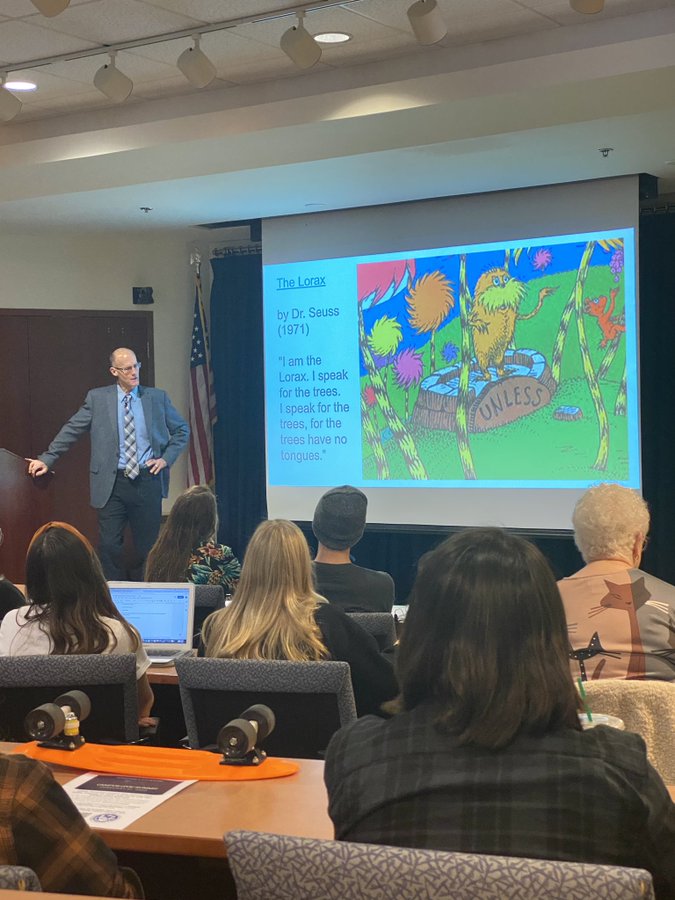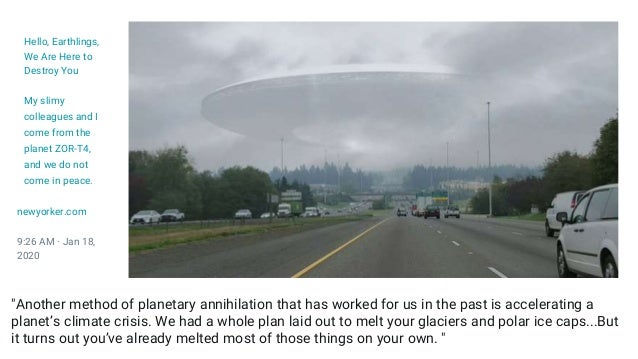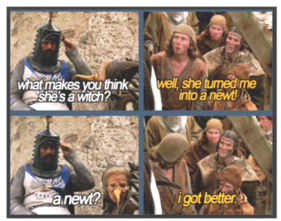Mitt Romney, profile in courage: who'd ever have predicted that! "Lamar!" though, profile in cowardice, is sadly no longer a shock. He's no Howard Baker, nor even a Bob Corker.
Local headline:
Two Republican lawmakers want to allow students at Tennessee's public universities and colleges to carry concealed handguns.
"The effort comes several years after lawmakers
approved a measure that lets full-time faculty, staff and other employees to carry guns on campus." My response then, and still, is that the only weapon I want in my classroom is the
Point of View gun.
Happier morning thoughts are called to mind by the birthday of Michael Pollan, a writer I admired and corresponded with before he became famous. I'd read his
A Place of My Own and presumptuously sent him a long chapter of my book in progress, which he graciously read and offered constructive comments on.
Happy birthday, Michael.
Today in CoPhi, the true "greatest generation" (but of course they had their limitations, many owned other humans; greatness is relative). The American Founders were rationalists and pragmatists,
true republicans who'd have recoiled from the Tennessee state legislature and probably would have withdrawn that ambiguous language about the right to bear arms if they'd known what kind of arms would be bearing and borne in 2020.
The Last Puritan was a novel by George Santayana (who warned us not to ignore history), but it was also the moniker of "Great Awakening" instigator Jonathan ("Sinners in the Hands of an Angry God") Edwards. He thought ecstatic shows of holy delirium ("moaning, weeping,screaming, jerking, fainting") somehow proved the divine source of all things. He was a respected scholar and preacher but he was also, as Andy said of Barney, a nut.
So was John Wesley if you ask me. He thought dreams were a landline to heaven, and inspired his early co-religionists to invest everyday life with intimations of the supernatural. Methodists have a reputation nowadays for moderation, but again these things are relative.
And George Whitefield, who popularized the "born again" phenomenon that captivated my early years and gave me night terrors ("If I should die before I wake" etc.) and later made me think I was missing an "intense supernatural feeling" without which I'd be left behind. (My parents didn't spout that nonsense, but some of my peers did. Wish I'd met a philosopher back then.)

Thomas Jefferson instructed his teenage nephew to "question with boldness even the existence of a god," and boldly cut up the Good Book to get the supernatural bits out. The result, he said, was sublime: the
Jefferson Bible, shorter and sweeter. He was a self-avowed Epicurean and materialist, and probably a Deist. He and his pals did not want to create a theocratic Christian nation.
The Framers didn't really forget God, they remembered to affirm a big beautiful wall between church and state. That Alexander Hamilton, what a card.
Have the courage to think for yourself, and grow up. That was Kant's message, and is
Susan Neiman's. But the market for reason is not as bullish as they'd have wished.
Neiman: “Reason drives your search to make sense of the world by pushing you to ask why things are as they are. For theoretical reason, the outcome of that search becomes science; for practical reason, the outcome is a more just world.” And, “A defense of the Enlightenment is a defense of the modern world, along with all its possibilities for self-criticism and transformation. If you’re committed to Enlightenment, you’re committed to understanding the world in order to improve it.”
Why Grow Up?: Subversive Thoughts for an Infantile Age
That's meliorism, not optimism. Take a sad world and make it better.
Mark Twain said there's nothing more sad than a young pessimist, except an old optimist. Right,
Dean Fischer?
Did you see the most-shared story in the
Times yesterday? "
Four ways to help your college student grow up." One of the ways: help them figure out how to script a conversation with their "intimidating" professors. Ha! Ask my daughters how intimidating I am. Or don't. But do come talk to me, kids. And share this article with you “helicopter,” “bulldozer,” “snowplow” and “lawn mower” parents please.
Are existential/"meaning of life" questions really so burdensome and beyond the pale of rational human thought? Kant thought so, thus proposing to limit reason and try to make room for faith. But we're testing that proposition this semester in A&P with
Neuroexistentialism. Lately our discussions have been all about free will, and the analogy of
dominoes I like to share.
"Knowing that I'm a domino and knowing, in so far as is possible, what forces are acting upon me, and making choices in light of this makes it possible--in my estimation--for me to feel free enough." Well said, Jamil.
Knowing oneself to be a "domino" of this sort would indeed enhance one's feeling of freedom in Spinoza's sense, i.e., leading one closer to acceptance of fate and necessity and personal impotence. But what then happens to the feeling of freedom as agency to influence events and outcomes in the world, to function as a meliorist (neither a cloudy pessimist or rosy optimist, just one who believes that things could be better and is prepared to work for that result)? If we're dominoes and know it, we'll better understand the tragic dimension of life. That's worth knowing.
But we Jamesians still want to experiment with the proposal that
free will might mean the sustaining (and acting upon) a thought,when I might have and might be distracted by other thoughts... and that free will in
that sense might make a difference in our lives and in those of others. When we attend, we gain information that may inform better choices. (But better
and efficacious? That's the question.) We could be wrong. But, what would it be better for us to believe? And here I go all pluralist again and say: I've decided it's probably better for ME to believe in free will, as here explicated. But it might not be better for you, or for one or another of our friends.
Maybe Sly and the Family Stone had the best last word on this:
you're free... well at least in your mind, if you wanna be...
One more thing, C.S. Lewis:
“Walking and talking are two very great pleasures, but it is a mistake to combine them. Our own noise blots out the sounds and silences of the outdoor world; and talking leads almost inevitably to smoking, and then farewell to nature as far as one of our senses is concerned. The only friend to walk with is one who so exactly shares your taste for each mood of the countryside that a glance, a halt, or at most a nudge, is enough to assure us that the pleasure is shared.” ― C.S. Lewis, Surprised by Joy: The Shape of My Early Life
Wrong again, Clive.



